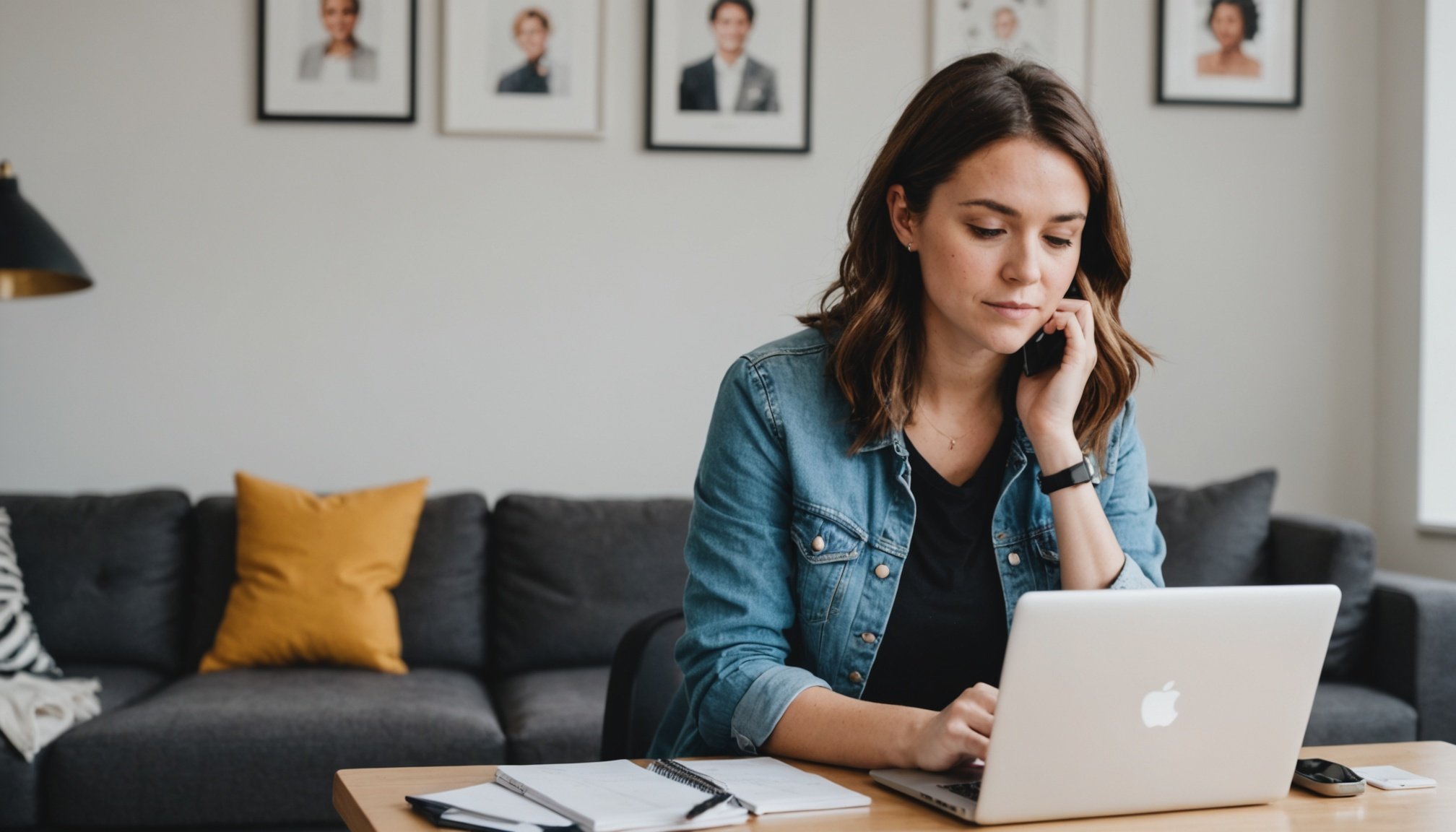Exploring the Effects of Social Media on Body Image and Self-Worth: Unpacking the Connection
In the era of social media, the way we perceive ourselves and our bodies has become increasingly influenced by the digital world. This article delves into the complex relationship between social media, body image, and self-worth, examining both the negative and positive impacts and offering practical advice on how to navigate these challenges.
The Link Between Social Media and Body Image
Social media platforms such as Instagram, TikTok, Snapchat, and YouTube are saturated with images and videos that often present unrealistic beauty standards. These platforms make it easy to curate a perfect online persona, thanks to advanced photo editing tools and filters. However, this curated perfection can have detrimental effects on how users perceive their own bodies.
Have you seen this : The Impact of Sleep on Shedding Pounds: Unlocking the Secrets to Weight Loss Success
The Rise of Body Dysmorphia
Body dysmorphic disorder (BDD) is a mental health condition characterized by obsessive thoughts about one’s appearance. Research has established strong connections between social media use and the symptoms of BDD. A 2023 study published in Frontiers in Psychology found that image-based social media platforms were significantly associated with increased symptoms of body dysmorphia among participants aged 16 to 18. These symptoms include:
- Anxiety about being judged or stared at
- Frequent changes in appearance
- Compulsive grooming behaviors
- Constant comparisons to others
- Feeling shame about one’s appearance
- Excessive time spent thinking about perceived flaws
- Thoughts of self-harm due to appearance concerns
According to the Cleveland Clinic, these behaviors can lead to co-occurring conditions such as anxiety and depression.
Also read : Uncovering the Major Causes of High Blood Pressure: Key Risk Factors and Effective Prevention Strategies
The Impact of Social Media on Mental Health
The influence of social media on mental health, particularly among young people, is a pressing concern. Here are some key points to consider:
Social Comparison and Self-Esteem
Social media fosters an environment of constant comparison. Users often compare their lives to the highlight reels presented by others, leading to feelings of inadequacy and low self-esteem. A study by the Pew Research Center highlighted that exposure to social media can cause individuals to compare themselves negatively to others, affecting their body image and overall self-esteem.
Media and Eating Disorders
The connection between social media and eating disorders is also significant. Research indicates that exposure to appearance-focused social media content can increase the risk of disordered eating. For instance, a study found that female respondents with no history of eating disorders reduced their calorie intake by an average of 20% after a week of exposure to pro-eating disorder content on social media. Similarly, up to 25% of male respondents experienced a higher risk of eating disorders when exposed to similar content.
Positive Effects of Social Media on Body Image
While social media can have negative impacts, it can also be a powerful tool for promoting positive body image when used responsibly.
Body Positivity and Self-Acceptance
Body-positive content on social media can inspire users and promote self-acceptance. A 2022 study found that adult women exposed to body-positive Instagram posts experienced an overall increase in body appreciation and satisfaction. This study underscores the potential of social media to foster a more positive body image by showcasing diverse body types and promoting realistic beauty standards.
Influencers and Role Models
Many influencers and content creators use their platforms to promote body positivity, self-acceptance, and mental health awareness. By sharing their own struggles and triumphs, these individuals can provide relatable role models for young people navigating the complexities of body image and self-worth.
Strategies for Building a Positive Self-Image
Given the significant impact of social media on self-image, it is crucial to develop strategies for maintaining a healthy and positive self-image.
Taking Breaks from Social Media
One of the most effective strategies is to take regular breaks from social media. Dr. Albers from the Cleveland Clinic advises setting screen time limits, deleting apps that have a negative impact, or even taking a full vacation from social media to see how it affects your self-image.
Cultivating Supportive Relationships
Surrounding yourself with supportive people who appreciate and uplift you can also help in building a positive self-image. Dr. Albers emphasizes the importance of relationships in reinforcing what we think and feel about ourselves.
Practicing Self-Acceptance
Self-acceptance is key to a healthy self-image. It involves recognizing and owning your assets and potential while being realistic about your liabilities and limitations. Here are some practical steps to achieve this:
- Keep a Gratitude Journal: Writing down things you are grateful for can help shift your focus from negative self-criticism to positive self-appreciation.
- Notice Your Sensitivities: Identify experiences, memories, or people that bring out negative descriptions about yourself and work on addressing these sensitivities.
- Engage in New Activities: Taking on new hobbies or goals can enhance your self-image by providing a sense of personal growth and achievement.
Table: Comparing the Effects of Different Social Media Platforms
| Platform | Positive Effects | Negative Effects |
|---|---|---|
| Can promote body positivity through diverse content; influencers can inspire self-acceptance. | Often presents unrealistic beauty standards; fosters social comparison and body dissatisfaction. | |
| TikTok | Provides a platform for creative expression and community engagement. | Can lead to constant comparison and the pursuit of viral content, which may negatively impact self-esteem. |
| Snapchat | Allows for more casual and less curated interactions. | Temporary nature of content can still lead to feelings of inadequacy and low self-esteem if users compare their lives to others. |
| YouTube | Offers educational and body-positive content; can provide realistic beauty standards. | Some channels may promote unhealthy beauty standards or disordered eating behaviors. |
Practical Advice for Young People and Parents
Navigating the complexities of social media requires a balanced approach. Here are some practical tips:
For Young People:
- Be Aware of Edited Content: Remember that most social media posts are curated and edited. Try not to compare your life to the highlight reels of others.
- Follow Body-Positive Accounts: Engage with content that promotes self-acceptance and diverse body types.
- Take Breaks: Regularly take time off from social media to focus on real-life interactions and self-care.
For Parents:
- Monitor Social Media Use: Be aware of the content your children are exposed to and have open conversations about the potential impacts.
- Encourage Offline Activities: Support your children in engaging in hobbies and activities that promote personal growth and self-esteem outside of social media.
- Promote Media Literacy: Teach your children to critically evaluate the content they see online and understand the difference between curated and real-life scenarios.
The relationship between social media, body image, and self-worth is multifaceted and complex. While social media can have negative impacts, such as fostering body dissatisfaction and low self-esteem, it can also be a powerful tool for promoting positive body image and self-acceptance when used responsibly.
By understanding the effects of social media and implementing strategies to maintain a healthy self-image, individuals can navigate the digital world in a way that supports their mental health and well-being. Remember, a positive self-image is not about achieving perfection but about embracing your uniqueness and accepting your humanness.
As Dr. Albers aptly puts it, “You can have areas you want to work on, but you should have a basic, solid set of values and an ethical core and accept your humanness.” By focusing on these values and cultivating a balanced view of ourselves, we can build a resilient and positive self-image that transcends the influences of social media.











